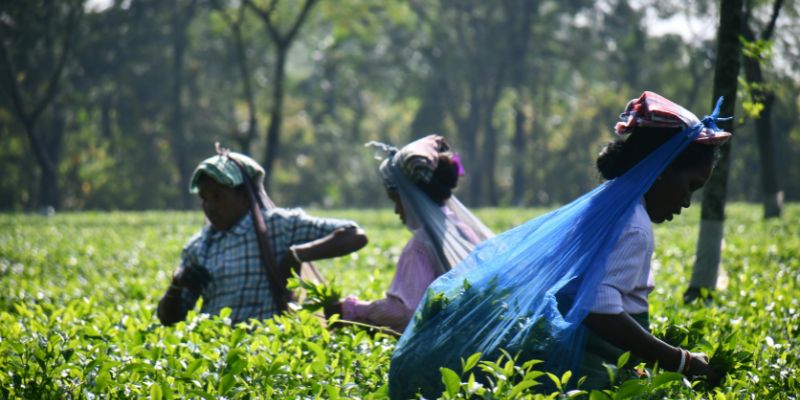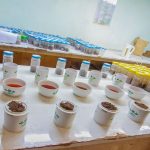Email: sales@aimco.co.ke | Telephone: +254 728 856 255
Table of Contents
The rolling highlands of Kenya are not just a breathtaking sight; they are the lifeblood of one of the world’s most significant tea industries. Renowned for its high-quality black tea, Kenya is the largest producer of tea in Africa and the third-largest globally. However, this position comes with immense responsibility, especially in an era where environmental degradation, climate change, and socio-economic challenges call for urgent action. Sustainable farming practices are becoming a critical focus for ensuring the longevity and resilience of the Kenyan tea industry.
The Importance of Sustainability in Tea Farming
Tea farming in Kenya is not just an economic activity; it is a way of life for over 600,000 smallholder farmers who contribute nearly 70% of the country’s tea production. The industry employs millions, directly and indirectly, and accounts for a significant portion of the country’s export revenue.
However, tea farming is resource-intensive. Unsustainable practices can lead to deforestation, soil degradation, loss of biodiversity, and water scarcity—all of which threaten the industry’s future. Moreover, climate change is making weather patterns less predictable, impacting tea yields and quality. Adopting sustainable farming practices ensures the industry’s survival while benefiting local communities and preserving the environment.

Key Sustainable Farming Practices in the Kenyan Tea Industry
1. Agroforestry
Agroforestry integrates trees and shrubs into tea plantations, offering a range of environmental and economic benefits. Trees act as windbreakers, reduce soil erosion, and improve soil fertility by adding organic matter. Additionally, they provide shade for tea plants, regulating temperatures and reducing water evaporation—critical in mitigating the impacts of climate change.
Organizations such as the Rainforest Alliance encourage agroforestry practices by certifying farms that meet stringent environmental standards. Farmers are incentivized to plant native trees and maintain biodiversity within their plantations, creating a more balanced ecosystem.
2. Soil Health Management
Healthy soil is the foundation of sustainable tea farming. Many Kenyan tea farmers are shifting towards organic fertilizers and composting techniques to maintain soil fertility. Crop rotation and intercropping are also being adopted to replenish nutrients naturally.
Soil testing has gained traction, enabling farmers to understand nutrient deficiencies and apply fertilizers more precisely. This reduces waste, lowers costs, and minimizes environmental impact.
3. Water Conservation
Tea farming requires significant water resources, making water conservation a priority. Farmers are increasingly adopting rainwater harvesting systems to collect and store water during rainy seasons. Drip irrigation systems are being introduced to optimize water use, delivering moisture directly to the plant roots with minimal wastage.
In areas prone to drought, some farmers are experimenting with drought-resistant tea varieties. These innovations not only conserve water but also ensure consistent production in challenging climatic conditions.
4. Energy Efficiency and Renewable Energy
Processing tea leaves into the final product is energy-intensive. Factories are turning to renewable energy sources such as solar, wind, and hydroelectric power to reduce their carbon footprint. Biomass energy, derived from agricultural waste like tea prunings, is also gaining popularity.
Smallholder farmers are encouraged to use energy-efficient stoves, which reduce reliance on firewood. This practice minimizes deforestation and lowers greenhouse gas emissions.
5. Pest and Disease Management
Conventional pest control methods often involve chemical pesticides, which can harm the environment and human health. Kenyan tea farmers are moving towards integrated pest management (IPM) strategies. These include:
- Biological control: Introducing natural predators to control pests.
- Cultural practices: Adjusting planting times and using resistant varieties.
- Mechanical methods: Manual removal of pests.
IPM reduces chemical usage while maintaining crop productivity and quality.
6. Certifications and Ethical Practices
Sustainability certifications like Fairtrade, Rainforest Alliance, and UTZ are becoming more prevalent in Kenya’s tea industry. These certifications ensure that farmers follow sustainable practices while receiving fair compensation for their produce.
Ethical practices extend to worker rights and community development. Many tea estates invest in healthcare, education, and housing for workers, fostering a more equitable and sustainable industry.
The Role of Technology in Sustainable Tea Farming
Digital Platforms and Apps
Digital tools are empowering farmers with real-time information on weather, soil conditions, and market prices. Mobile apps like iShamba provide agricultural advice tailored to tea farming, enabling farmers to make informed decisions.
Precision Agriculture
Drones and satellite imagery are being used to monitor crop health and detect issues like pest infestations early. This allows farmers to apply interventions precisely where needed, reducing costs and environmental impact.
Blockchain for Transparency
Blockchain technology is being explored to ensure traceability in the tea supply chain. This guarantees consumers that the tea they purchase is sustainably sourced, encouraging more ethical consumption.
Challenges and Opportunities
Despite the progress, challenges remain. Many smallholder farmers lack access to resources, training, and capital needed to implement sustainable practices. Market fluctuations and the high cost of certifications can also discourage sustainability efforts.
However, the opportunities are immense. Global demand for sustainable and ethically sourced products is rising, offering a premium market for Kenyan tea. By embracing sustainability, Kenya can solidify its reputation as a leader in the global tea industry.
Conclusion
Sustainable farming practices are not just an option but a necessity for the Kenyan tea industry. By adopting methods such as agroforestry, water conservation, and renewable energy, the industry can mitigate environmental impacts while improving livelihoods. The integration of technology and the push for certifications further underscore the industry’s commitment to a sustainable future.
As Kenya continues to produce some of the world’s finest teas, it must do so responsibly, ensuring that its natural resources and communities thrive for generations to come. The journey towards sustainability is a shared responsibility, and every cup of Kenyan tea can be a testament to this noble endeavor.




